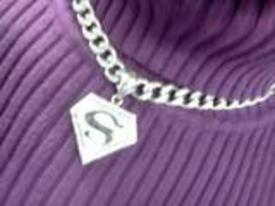why am i retaining so much water???

msstonediva
Posts: 31 Member
I do have high blood pressure which i am taking medication for but this water retention is driving me nuts, what can I do to decrease it?
0
Replies
-
Drink a whole lot of water, and really monitor your sodium intake. Good luck!0
-
You need to drink more water believe it or not but is true & keep your salt / sodium intake low & rosehip tea is also helpful. I don't have a blood pressure problem but do retain water if not very careful & was a few months before it settled down.Good luck.0
-
drink more water, you will pee more but thats what happens0
-
Where are you retaining? are you swollen in your legs or anything like that? That's a trip to the doc if so...0
-
Watch your sodium and drink more water.0
-
I agree that you should discuss this with your doctor. Especially with a history of hypertension. He/she may want to put you on a diuretic to accompany your blood pressure medication. My doctor advised this for me for awhile.
Here is something that I have posted on other threads when they ask about excess sodium intake:
Sodium helps regulate blood volume and aids in nerve impulse conduction and muscle contraction control. Therefore isolated incidences of excessive sodium intake results in edema (fluid retention) which puts stress on the cardiovascular system. Typically the kidneys compensate by excreting the resulting excess fluid. However, persistent excessive consumption greatly increases the risk of hypertension. Doctors and dietitians usually recommend no more than 2400 mg of sodium per day for the general population. I think MFP puts the maximum at 2500 mg per day. With a history of hypertension you should limit your intake to 1500 mg per day.
Prepackaged and processed foods have a high sodium content (sodium is a preservative) as well as canned foods. Try eat foods you have prepared yourself and eat lots of fruits and veggies. You can't avoid sodium, but you CAN keep your intake under control. You should consider looking up information on the DASH diet, which focuses on hypertension. At first it will seem difficult to keep your sodium intake under control but overtime you will realize it isn't as difficult as you think. Making the change is the hardest part. You'll also notice after awhile that foods really do taste so much better without all the salt.
You'll also notice after awhile that foods really do taste so much better without all the salt.
Hope this helps! Good luck!
Good luck!
PS.....and get extra water everyday as the above posters indicate......it helps!0 -
I had a look at your diary, and if its accurate, then you are not eating near enough in a day. Plus what you are eating does not have much nutritional value. You should be getting in 1200 calories for your body to function. Also, when you go so long without eating (as in skipping meals) and are so far under the 1200 calorie mark, your body goes into starvation mode. It can't function properly and it holds onto every calorie for as long as it can and it slows down your metabolism.
Plus I agree with the other answerers that less sodium and more water helps greatly in eliminating water retention.
My doctor has me on a great plan - I eat 50% veggies, 25% lean protein and 25% carb at every meal. Fruit for snacks. Maybe give that a try and see how you do? Its working fabulously for me. I'm never hungry, and have loads of energy most days. Plus the weight is consistently coming off.
Best wishes!0 -
Like they said, tons of water, cut way down on sodium.0
-
Your food diary implies that you eat Dunkin Donuts every morning. That is high sodium. Some mornings you're taking in 1,000 mg of sodium from one meal. I would suggest that you prepare your breakfast at home, eat throughout the day, and drink a minimum of 64 ounces of water a day.0
This discussion has been closed.
Categories
- All Categories
- 1.4M Health, Wellness and Goals
- 398.1K Introduce Yourself
- 44.7K Getting Started
- 261K Health and Weight Loss
- 176.4K Food and Nutrition
- 47.7K Recipes
- 233K Fitness and Exercise
- 462 Sleep, Mindfulness and Overall Wellness
- 6.5K Goal: Maintaining Weight
- 8.7K Goal: Gaining Weight and Body Building
- 153.5K Motivation and Support
- 8.4K Challenges
- 1.4K Debate Club
- 96.5K Chit-Chat
- 2.6K Fun and Games
- 4.8K MyFitnessPal Information
- 12 News and Announcements
- 21 MyFitnessPal Academy
- 1.5K Feature Suggestions and Ideas
- 3.2K MyFitnessPal Tech Support Questions








